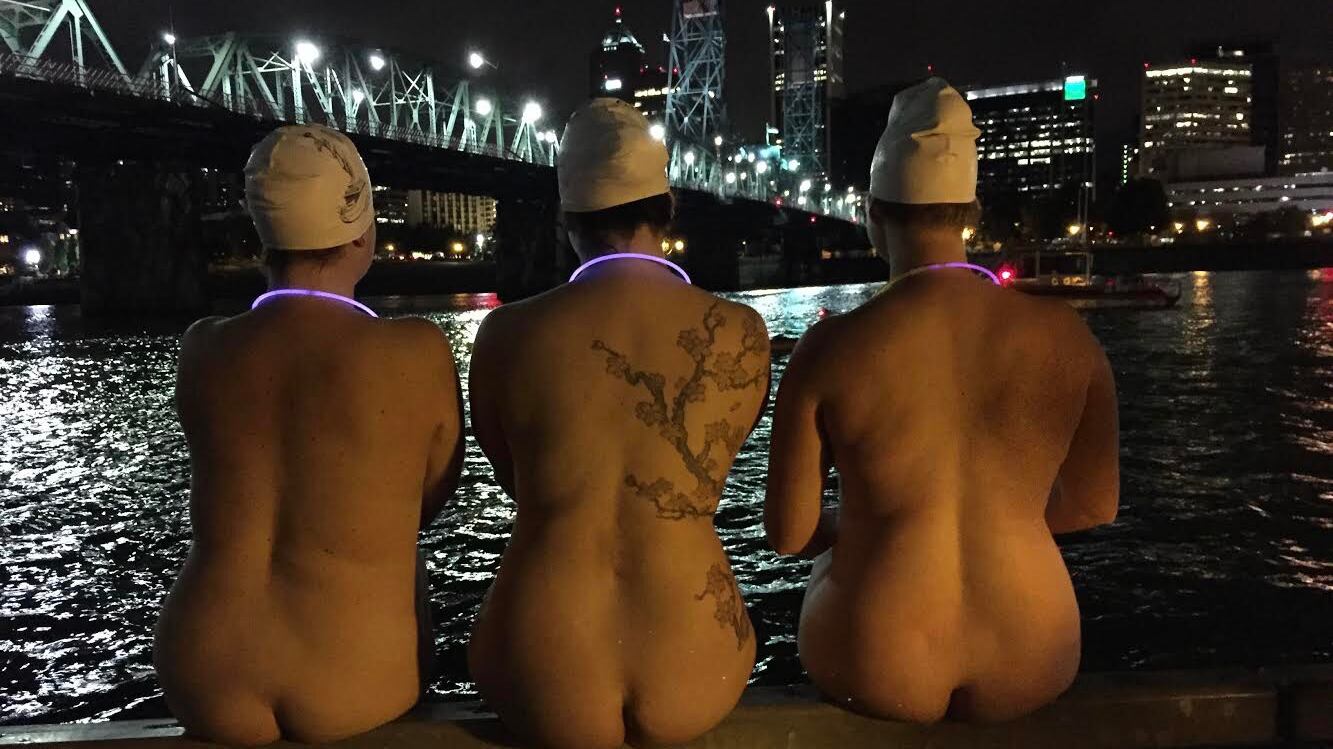For seven years, a group of mostly middle-aged women have jumped naked into the Willamette River to celebrate their bodies.
The event is called the Naked Goddess Swim, and organizers say that Facebook has consistently blocked ads for the event after the first attempt at posting the ad depicted the naked backs of three women.
"it's about radical self-acceptance and loving our bodies as they are," event organizer Janie Malloy says. "It's definitely not about being sexually provocative or being vulgar."
Facebook and other social media platforms have come under fire for not cracking down on explicit content—but also have been criticized for overstepping censorship bounds by blocking content that users deem benign.
That presents an everyday challenge to social media moguls: When do social media platforms step in to regulate, and who decides what is appropriate and what's not?
Several weeks back, Malloy attempted to advertise the event on Facebook. The ad was accompanied by a picture of three women sitting on the edge of the river and wearing swim caps. She received an automated message from the company saying her ad had not been approved for publish, and has since been denied advertising for the event.
The message told Malloy that the ad contained "excessive skin or nudity, which includes medical diagrams depicting external organs of reproduction, breasts, or butt."
Malloy made subsequent efforts to advertise the event by swapping out the photos for more conservative images: the first two attempts depicted three middle-aged women, fully clothed and smiling at the camera. The next two attempts depicted nude Greek statues, which are deemed acceptable according to Facebook's advertising policies.
"Every one of the requests has been rejected on the grounds that the images contain excessive nudity or are sexually suggestive. This has occurred even when the picture depicts women who are fully clothed," a statement from the Naked Goddess Swim team read.

Facebook's advertising policy states that "Images focused on individual body parts, such as abs, buttocks or chest, even if not explicitly sexual in nature" are not allowed.
Facebook finally approved the advertisement July 17 after Malloy re-submitted it using a photo of a woman in a burka. Malloy says it still troubles her that Facebook denied all the other previous attempts for weeks (after approving the burka image, Facebook then accepted all the rest.)
Malloy suspects that Facebook detected a trigger word "naked" in the title of the event, and therefore would not accept advertising. She says she appreciates that Facebook censors advertising that depicts vulgarity and sexual events, but says that Facebook "must be moving behind the advertising and actually judging the event itself" blocked the ads once the pictures showed fully-clothed women.
"And I think that steps over the line," Malloy says "If you're telling me that 50-year old women wearing glow in the dark jewelry and long sleeve robes are excessively nude and posing as sexually provocative, that's upside down."
The event is scheduled to take place on the evening of Saturday, July 20 at the Eastbank Esplanade. Malloy says roughly 100 women attend the event each year.
"The whole point of this is to celebrate and love our bodies, and stop objectifying our bodies based on sexual provocation," says Mallow. "Facebook is continuing the sexist promotion of women as purely sexually provocative."

